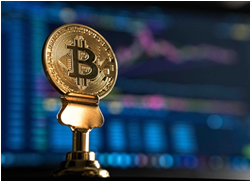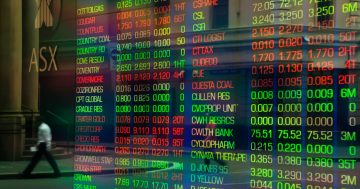Ariel Bogle* says cryptocurrency, which is an industry with a reputation problem, has taken a step towards respectability with AUSTRAC registration.

Photo: André François McKenzie
Australia’s top financial intelligence agency has now officially registered 246 cryptocurrency exchanges — a move some claim is a step towards respectability for an industry with a reputation problem.
Changes to anti-money laundering and counter-terrorism laws last year required digital currency exchanges, which let people trade online assets like bitcoin, to register with the Australian Transaction Reports and Analysis Centre (AUSTRAC).
According to documents obtained by the ABC, the Agency also investigated 11 exchanges and subsequently refused two registrations between April 2018, when the changes kicked in, and mid January this year.
AUSTRAC did not share on what grounds they were refused.
The registration process can include background checks, as well as consideration of whether those involved present a risk of money laundering or other crimes.
After years of eye-watering bounces in the value of digital currencies as well as high-profile financial scams, some believe such rules lend more legitimacy to cryptocurrency businesses and blockchain projects.
“We always had the feeling that regulation is important to bring cryptocurrency into the mainstream,” said Adrian Przelozny, the head of cryptocurrency exchange Independent Reserve.
‘Cowboys and the shonky operators’
Digital currency exchanges were given until early October to be fully compliant with AUSTRAC rules, including reporting suspicious transactions.
An Agency spokesperson said work is now being done to assess industry compliance.
“We will not hesitate to take strong enforcement action where significant or wilful non-compliance is identified,” he said.
Michael McCarthy, Chief Market Strategist at CMC Markets (which also offers bitcoin trading), said that while early movers in the cryptocurrency space were “highly suspicious of authority”, the industry had moved on.
“Those newer participants in the market generally do seek regulation, they seek safety,” Mr McCarthy said.
Regulation helped delegitimise “the cowboys and the shonky operators”, suggested Dr Phillippa Ryan, senior lecturer at the University of Technology Sydney, who researches trust in digital economies.
Unfortunately, it can also benefit them, at least in the short term, because companies skirting the rules don’t pay compliance costs and can often compete on price.
But dodgy exchanges ultimately damage consumer trust, and trust is something the business of digital currencies has arguably been lacking.
In late 2017, the cryptocurrency market saw a boom as new investors rushed in on the promise of improbable valuations — bitcoin reached highs of A$27,200.
Yet in 2018, Australia’s competition regulator received more than 6,000 Scamwatch reports related to cryptocurrency, with reported losses totalling more than $9.5 million.
The majority were investment scams.
In recent years, some exchanges collapsed and others were hacked for millions in digital coins.
“If you look back two or three years, it was quite easy for anyone to start their own exchange,” Mr Przelozny said.
“It was really up to the consumer to do their own research to see if the exchange they were interacting with was one they could trust.”
A ‘light touch’ regulatory approach
Mr McCarthy said the approach taken by Australian regulators to digital assets had generally been viewed positively by the industry.
In April, the Australian Securities and Investments Commission (ASIC) received delegated powers to act under the Australian Consumer Law against misleading conduct in the marketing or selling of initial currency offerings (ICOs) — where new digital “tokens” are bought using established cryptocurrencies like bitcoin or Ethereum.
In a speech in April 2018, ASIC Commissioner, John Price said some people saw ICOs “as an easy, low-regulation and low-cost option” for raising money.
“[This] could lead to immature businesses coming to market,” he said.
“The stories that come out about these businesses are, and will continue to have, a negative impact on investor confidence over time.”
In September, ASIC announced it had stopped several proposed ICOs aimed at retail investors for making deceptive statements and not holding financial services licences, among other issues.
The Treasury has now begun its own consultation process considering ICOs.
Dr Ryan, who is also associated with the Australian Digital Commerce Association, said she expects the Government to re-examine its treatment of cryptocurrencies over time.
“You need to start at the beginning, with all the regulation you need and no more to support innovation and protect investors,” she said.
“Then you let it run … [and] start legislating as things go wrong and you learn lessons.”
Crypto and super: ‘There is going to be litigation’
Despite its tumultuous history, the digital currency market continues to attract interest.
Some self-managed super funds (SMSFs) are now said to be investing in cryptocurrencies.
While this is allowed, ASIC has released advice warning that cryptocurrencies come with few safeguards.
Dr Ryan suggested this SMSF strategy is likely to face some hurdles due to the serious legal responsibilities placed on those running super funds and the volatility of digital currencies.
“There is going to be litigation about this,” she said.
“It is going to happen.”
AUSTRAC does not currently publish a list of registered digital currency exchange providers, but is considering it.
* Ariel Bogle is online technology reporter in the ABC RN science unit. She tweets at @arielbogle.
This article first appeared at www.abc.net.au.











